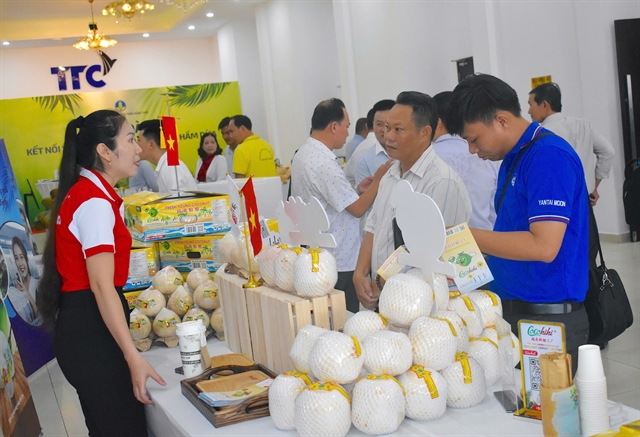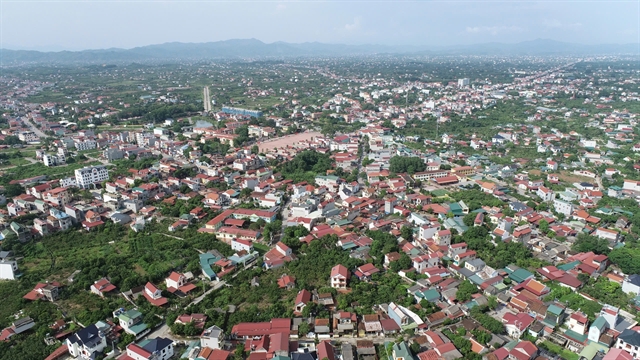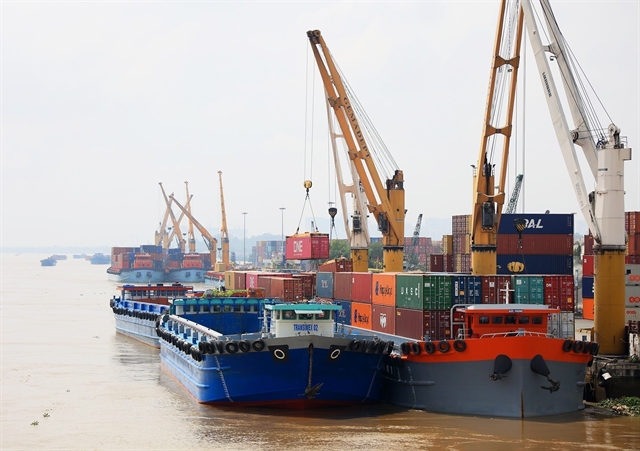

The ASEAN Customs Transit System (ACTS) is a secure distributed online IT system designed to make movement of goods in transit across the borders of ASEAN countries quicker and easier.
The ASEAN Customs Transit System (ACTS) is a secure distributed online IT system designed to make movement of goods in transit across the borders of ASEAN countries quicker and easier.
The system links all customs offices at points of departure, border crossings and destinations across the region to simplify and speed up clearance formalities and provide detailed real-time data on goods in transit.
Viet Nam News speaks with Paul Mandl, team leader, ARISE Plus Programme, and Chris Humphrey, executive secretary of the EU-ASEAN Business Council, about the operation of ACTS and how it helps Viet Nam’s economy.

|
| Paul Mandl, team leader, ARISE Plus Programme |
It has been a few months since ACTS was launched in Southeast Asia. How has the start been in the region and in Viet Nam?
Paul Mandl, team leader, ARISE Plus Programme: The take-up of ACTS in the ASEAN region has been slow, due in part to the pandemic.
In addition, some of the stakeholders in the private sector are still coming to terms with certain new features of ACTS.
These notably include the need for the Principal Trader [responsible for the transit movement] to obtain a regional guarantee, and the need for transporters to apply for specialised transport permits.
Viet Nam is well-placed to resolve such challenges with prior experience gained from current regional transit systems for the Greater Mekong Sub-Region such as the Cross Border Transport Agreement (CBTA), under which too transport permits are required.
Chris Humphrey, executive director, EU-ASEAN Business Council: ACTS undoubtedly has the potential to transform the overland movement of goods in the region, significantly lower costs and remove complexities for exporters and logistics firms. But its success relies on inter-state co-operation and ensuring that technical difficulties are ironed out quickly.
To my understanding, ACTS is working well between most of the land-connected ASEAN states involved, and usage rates are increasing. But there remains a problem with Viet Nam’s involvement due to data sharing issues between Viet Nam and other countries.. These need to be resolved to help ease the flow of goods to and from Viet Nam to other ASEAN countries. ACTS also needs to be extended to Myanmar.

|
| Chris Humphrey, executive secretary of the EU-ASEAN Business Council |
How effective has ACTS been so far in helping foster economic growth and integration into the global economy?
Paul Mandl: These are very early days, with the effectiveness of ACTS thus far being concentrated within developing and agreeing upon a set of simplified and harmonised customs control, procedures and standard electronic message exchanges between ASEAN member states.
This, along with the extensive training ARISE Plus has provided to the public and private sectors, means that ASEAN member states are well placed to reap the rewards of the major investments in ACTS they and the EU have made.
Chris Humphrey: It is too early in the implementation of ACTS to get reliable data on this. However, the mere fact that goods can now move between two countries through a third country without the need for transhipment from one vehicle to another, without the need for additional and unnecessary customs checks, and using one set of documentation, will undoubtedly reduce costs and help the development of regional supply chains.
These are key factors in helping increase intra-ASEAN trade, which remains pitifully low as a percentage of total ASEAN trade at around 22 per cent. Improving efficiency in intra-ASEAN logistics will help spur more economic activities between ASEAN member states, boosting economic development in the region.
The private sector and SMEs are developing strongly in the region. How will ACTS help them?
Paul Mandl: ACTS is open to all enterprises that carry out regional logistics operations. SMEs will be able to benefit from the reduced costs of carrying out cross-border trading operations, which are greatly facilitated and accelerated under agreed ACTS procedures, and the subsequent increased efficiency in the utilisation of larger companies’ transport fleets.
Chris Humphrey: Put simply, ACTS will help by easing bureaucratic burdens, speeding up logistics, and lowering logistics costs.
The first of these is probably the more important for SMEs. Large firms have the human capacity and experience to deal with undue bureaucracy, while for SMEs it will mean engaging valuable and limited human capital that could otherwise be deployed for other tasks. Thus, ACTS will help boost productivity and efficiency for many SMEs who are looking to expand beyond their domestic markets and make exporting to near neighbours in ASEAN much easier and more attractive.
How do you see the road logistics networks develop in the region to take advantage of ACTS? In this regard, please tell us the plans to support the region including Viet Nam?
Paul Mandl: ARISE Plus is planning a number of system enhancements to make ACTS more user-friendly and effective, including migration towards handling multi-modal goods consignments.
Viet Nam will benefit from continued ARISE Plus support, supplemented by the permanent ACTS central management team based in the ASEAN Secretariat in Jakarta. This support will include refresher procedural training for all stakeholders in the public and private sectors as well as technical support to assist participating member states in keeping the ACTS digital environment running smoothly.
Chris Humphrey: Developing regional supply chains and better linking them to the broader global economy is vital for ASEAN to achieve its goals of developing a “single market and production base” as promised under the ASEAN Economic Community (AEC) blueprints.
ACTS is one key tool to achieve this objective. It should, when fully implemented -- and that means ensuring all parties involved can fully access the system including those in Viet Nam -- help boost overland logistics in the region. This enables growth for logistics firms, speeds up deliveries and helps companies in the region sell their products to new markets and new customers.
There will be a need to constantly monitor usage and iron out technical problems in the near term. This will involve support from project teams at the EU’s ARISE+ project, as well as the full co-operation of the ASEAN member states involved, including Viet Nam.
It is expected that ACTS could support post-COVID recovery to accelerate the movement of medical supplies, vaccines and personal protective equipment within member states. Could you tell us more about that?
Paul Mandl: ACTS offers a simplified regime for accelerating the cross-border transport of goods required for disaster relief, including medical supplies, vaccines and personal protective equipment.
Specifically, for such movements, there is no need for a regional guarantee to be obtained by the Principal Trader, which is normally required to protect the duties at risk on an ACTS transit movement. This is expected to provide major assistance in supporting post-COVID recovery.
Chris Humphrey: The basic tenet of ACTS is to ease cross-border movement of goods in the land-connected countries of ASEAN. Naturally, it should make moving medical supplies such as personal protective equipment easier over borders too. However, it does need the authorities in the region to fully embrace ACTS and ensure that their respective systems can not only talk to each other but also share data effectively and efficiently. — VNS


.jpg)






